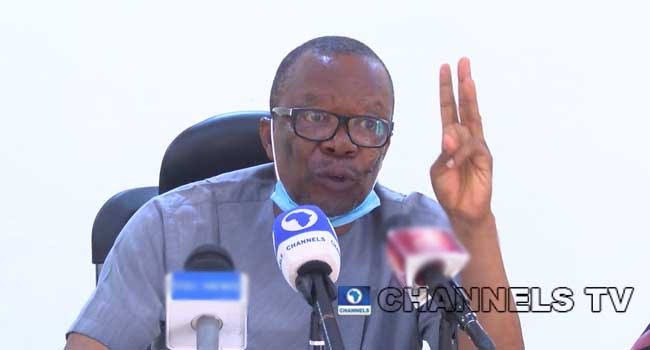Educational Issues
The ASUU Challenge -By Adesina Wahab
To know and feel the impact of the Fund, one only has to take a tour of any government-owned (state or federal) college of education, polytechnic or university in the country to see what has been done in terms of provision of facilities. This is aside from the training of manpower both locally and abroad. In fact, some of the institutions can be described as being owned by TETFund.

Founded in 1978, the Academic Staff Union of Universities, ASUU, is an offshoot of the Nigerian Association of University Teachers, NAUT, which was established in 1965. At that time, NAUT consisted of only five universities in total, including the University of Ibadan; the University of Nigeria, Nsukka; Ahmadu Bello University, Zaria; the University of Ife; and the University of Lagos.
It was formed to cater for the interests of all academic staff in federal and state universities in Nigeria.
ASUU and its many sweet-bitter struggles
According to a retired Professor of History, Jide Osuntokun, in his write-up titled, “Higher education and the future of Nigeria,” the first industrial action by university lecturers in Nigeria was recorded in the 1973/74 session.
The union was active during the military regimes of the 1980s and the 1990s. For instance, in 1988, it went on a national strike to obtain better welfare packages for members, and to seek university autonomy among others. It was subsequently proscribed on August 7, 1988, and was only de-proscribed in 1990. It was later banned on August 23, 1992, before being left off the hook on September 3 of the same year. Interestingly and up until now, the union has been going on strike for almost the same reasons.
Frequency of strikes
Since the beginning of the Fourth Republic in 1999, ASUU has gone on strike 16 times with the shortest duration being for three days in 2006 and the longest being nine months in 2020. The cumulative period that ASUU has gone on strike is over five years and still counting. The strikes so far recorded in the current civilian dispensation and the duration are 1999 five months; 2001 three months; 2002 two weeks; 2003 six months; 2005 two weeks; 2006 three days; 2007 three months; 2008 one week; 2009 four months; 2010 five months; 2011 59 days; 2013 five months; 2017 one month; 2018 three months; 2020 nine months; and 2022, since February 14, this year.
Reactions of stakeholders
Embarking on strike is simply wasting the time of the hapless students and putting needless pressure on the parents. The immediate past National President of the National Association of Nigerian Students, NANS, Sunday Asefon, said, “We have taken the time to review the decision of ASUU to declare an indefinite strike after the ongoing six-month strike. We consider the decision not only unpatriotic, unnecessary but wicked and definitely not in the interest of our nation nor the tertiary education system in Nigeria.”
The National President of the National Parent Teacher Association of Nigeria, NAPTAN, Alhaji Haruna Danjuma, noted, “Parents dream of the day when their children would begin to take care of them after all the efforts put into their training; but if the productive years of the children have been wasted due to strikes, what follows? There are a thousand and more ways of resolving issues amicably without doing collateral damage to the system.”
Is strike the only way to press home demands?
According to the National Coordinator of the Congress of University Academics, CONUA, an academic staff union in the university system hoping to be registered, Dr Niyi Sunmonu, “we have observed over the years that there are problems in the universities and there is no organisation or society without its own challenges. But as researchers, the method being deployed over time, which is industrial action, has done some good but it has done more harm than good to the system.
Incessant disruptions to the academic calendar because of strikes will not make our universities compare and compete with others globally. The government, too, has not done well with respect to honouring agreements. The solution I will proffer is that when we see a problem, we should first interrogate it and look at how to tackle it. As we all know, there is no confrontation that won’t be resolved at a roundtable peace meeting. In essence, parties to a face-off must continue to dialogue.”
Are ASUU’s struggles fruitless?
During the military era, the union, not minding the jackboot of the khaki boys, went on strike to demand better funding of the education sector and that culminated in the establishment of the Education Tax Fund, ETF, in 1993. The ETF later transformed into the Tertiary Education Trust Fund, TETFund. The agency, initially derived its fund from 2 per cent of the profits declared by publicly quoted companies, before the contribution was raised to 2.5 per cent last year.
To know and feel the impact of the Fund, one only has to take a tour of any government-owned (state or federal) college of education, polytechnic or university in the country to see what has been done in terms of provision of facilities. This is aside from the training of manpower both locally and abroad. In fact, some of the institutions can be described as being owned by TETFund.
But that does not mean an issue can only be assessed through one perspective and that industrial action is the only sure way to press home demands by staff unions.

















